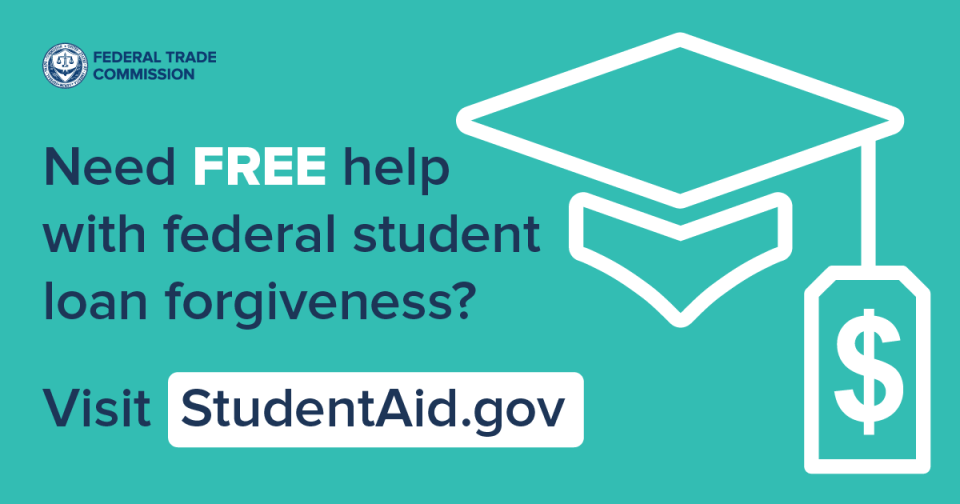Scammers will say just about anything — in any language — to separate you from your hard-earned money. And when it comes to student loan forgiveness, they’ll target Spanish speakers with false promises of debt relief help.
The FTC just sued USA Student Debt Relief (USASDR) for advertising and signing up people for fake student loan forgiveness plans with super-low monthly payments. The FTC says USASDR targeted borrowers living in Puerto Rico by pretending to be affiliated with the Department of Education and posting fake testimonials and reviews online.
Instead of helping, USASDR pressured people to quickly sign a super-long, difficult-to-read contract (completely in English, even though the sales pitch was often in Spanish). Once you signed up, the company (illegally) billed you an upfront fee, and then started charging you monthly — payments you thought were going towards your loans (but weren’t). Instead, all the fees went into USASDR’s pockets. To keep their scheme going, the FTC says USASDR sometimes changed the contact information in your FSA account so your (real) lender couldn’t reach you.
Want to avoid student loan forgiveness scams? Here are some things to know:
- Scammers often lie and say they’re affiliated with the Department of Education. Make sure you’re working with a federal student loan servicer that’s listed on the Department of Education’s website. (And use the contact information listed there, too — scammers can spoof the numbers and names of legit servicers.)
- Scammers say they need your FSA ID login information. Never give out this information. If a scammer gets your FSA ID, they could cut you off from your loan servicer — or even steal your identity.
- Scammers will tell you to sign contracts in a language you don’t understand. You have a right to know what you’re paying for before a company charges you. Don’t sign a contract you don’t understand, whether or not it’s written in another language.
Get free help managing your federal loans at StudentAid.gov/repay. Got private loans? Go straight to your loan servicer for help.


Thank-you!
Even though I don't have any of these, they are still contacting me!
I hate it because they take up ally space on my phone, Facebook and Email!
Great information, Ari!
How can i file a complaint?
In reply to How can i file a complaint? by Matthew
Report fraud, scams, and bad business practices to the FTC at www.ReportFraud.ftc.gov. The information you give goes into a secure database that the FTC and other law enforcement agencies use for investigations and to build cases.